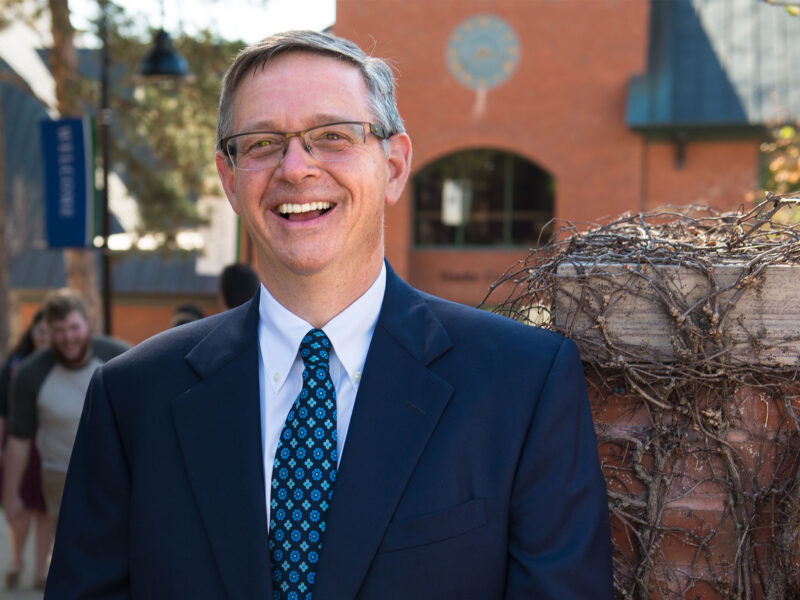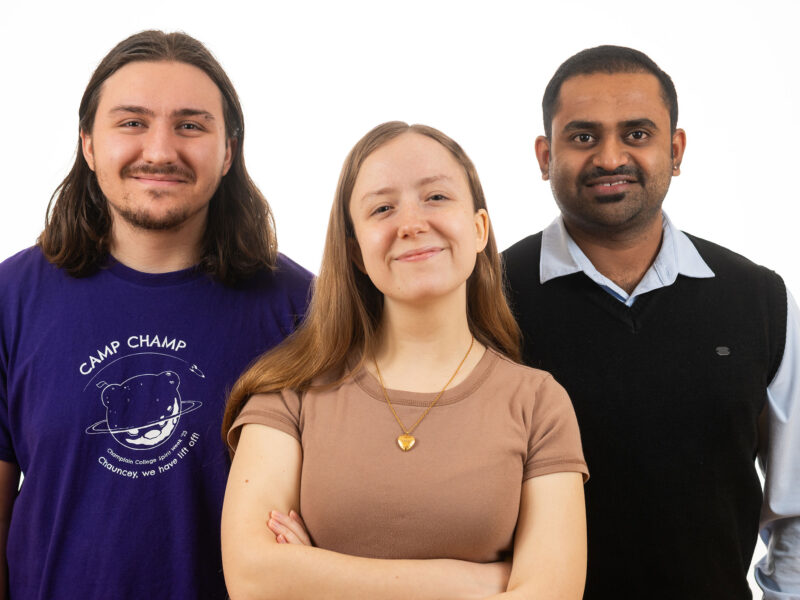Professor Brian Hall Presents on AI to Congress in DC

Professor Brian Hall recently traveled to Capitol Hill to represent Champlain College at a showcase for the Congressional Artificial Intelligence Caucus. The Caucus brought together experts from academia, government, and the private sector to educate policymakers on the technological, economic, and social implications of artificial intelligence (AI). As one of only 14 National Science Foundation (NSF) awardees invited to present at the event, Champlain and our grant cohort partners were recognized as an important voice in the quest to include a variety of institutions in the ongoing shaping of AI policy, education, and workforce development in the United States.

What Is The AI Caucus?
The AI Caucus operates in both the U.S. House of Representatives and the Senate, with a bipartisan mission to engage lawmakers, experts, and industry leaders in discussions about the implications of rapid AI innovation. Founded by U.S. Representatives Anna G. Eshoo (D-CA) and Jay Obernolte (R-CA) in the House, and led by Senators Martin Heinrich (D-NM) and Mike Rounds (R-SD) in the Senate, the Caucus focuses on developing policies that support AI’s growth while also considering its ethical implications. This dialogue is essential for ensuring that AI development benefits all Americans while maintaining the country’s competitive edge globally.

Champlain’s Contributions to AI Policy & Education
Professor Hall’s invitation to showcase our project before the AI Caucus highlights Champlain’s long-standing track record of championing innovation in education through industry-relevant academic programs and partnerships— including its participation in the National Science Foundation’s (NSF) “Enabling Partnerships to Increase Innovation Capacity” (EPIIC) program. This initiative empowers institutions like Champlain (also known as “Primarily Undergraduate Institutions” or “PUIs”) to strengthen their applied research capabilities and explore new ways and partnerships to prepare today’s students for the technological advancements of tomorrow.
Through programs like EPIIC, Champlain is helping students to engage meaningfully with emerging technologies in a way that not only meets the needs of a modern workforce but also fosters innovation in their local communities. Champlain has also been involved in critical NSF work to further workforce development and increase federal research in the state, including the GRANTED RAISE-VT Steering Committee and resulting Capstone Workshop, NSF EPSCoR SOCKS grant, and the NSF Exploring EPSCoR Ecosystem Workshops.
Champlain was part of a highly selective group of 14 awardees invited to present to the AI Caucus and one of only three projects representing the NSF’s TIP Directorate. In fact, the College’s cohort (which also includes Christopher Newport University and Western Oregon University), was the sole representative of the EPIIC program at the event.

Why This Matters
Professor Brian Hall’s participation in the Congressional Showcase, co-hosted by the NSF and the House and Senate AI Caucuses, reflects Champlain’s commitment to advancing AI policy in a meaningful way. It was an opportunity to help shape the national discourse around AI education and underscore the importance of integrating it at the undergraduate level. With Congress charged with providing funding for essential programs like the NSF, this type of recognition helps ensure that future policy and funding decisions reflect the educational sector’s needs and capabilities—so that Champlain and other institutions like it can continue to prepare students for the jobs of tomorrow.
Looking for more information about Champlain College? Start here!
Fill out the form to receive helpful information!
Related News



Mentored by their professor, two Champlain College students gain international recognition for groundbreaking research that helps secure privacy in big data.
More Inside The View
Ideas
From the minds of our students, faculty, and alumni.
News
The latest from Champlain College.
People
Champlain is more than just a place; it's a community.
Places
On campus, in Burlington, and beyond.
Events
Check out our many campus events and get involved! Refine your search by using the filters or monthly view options.